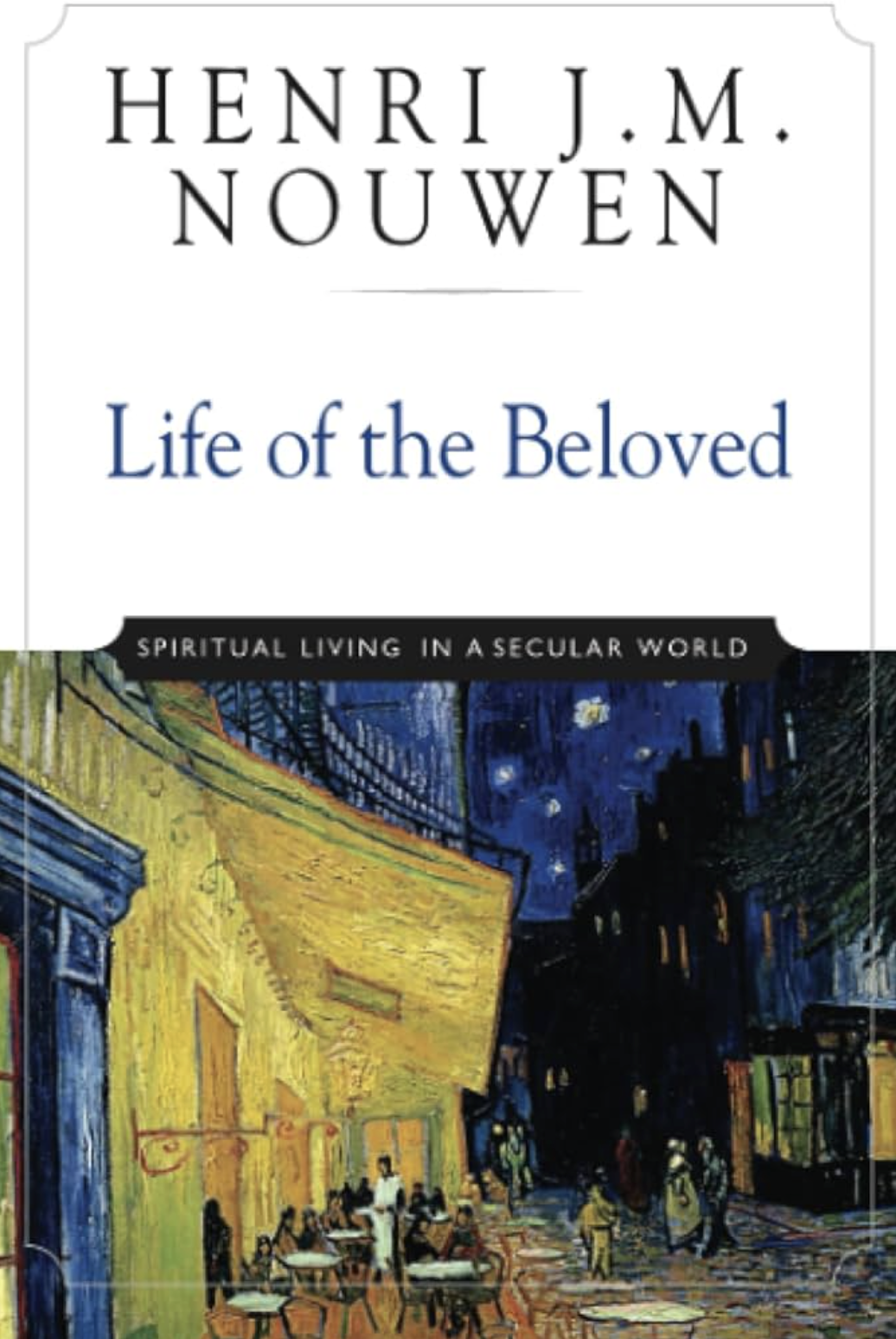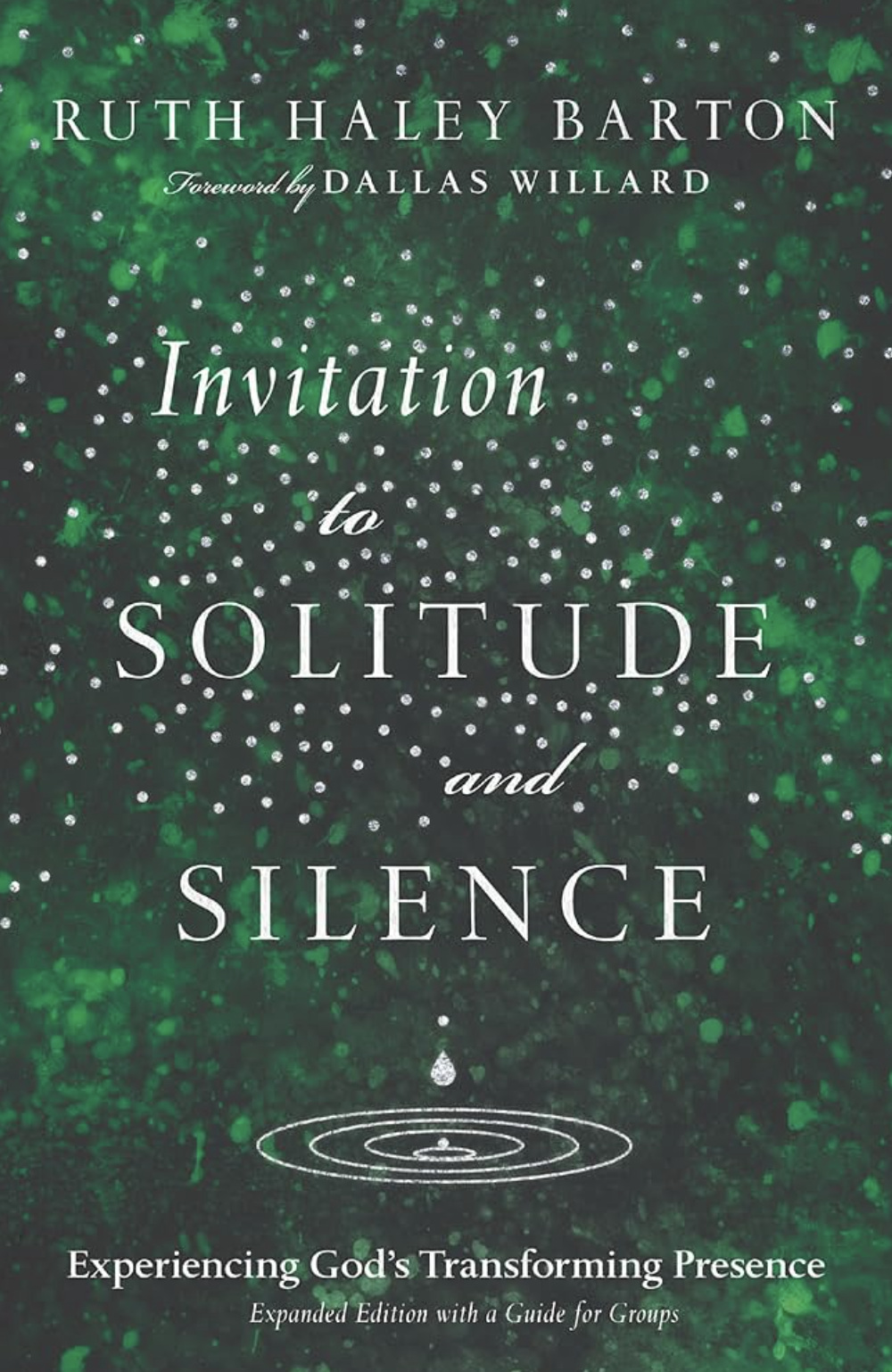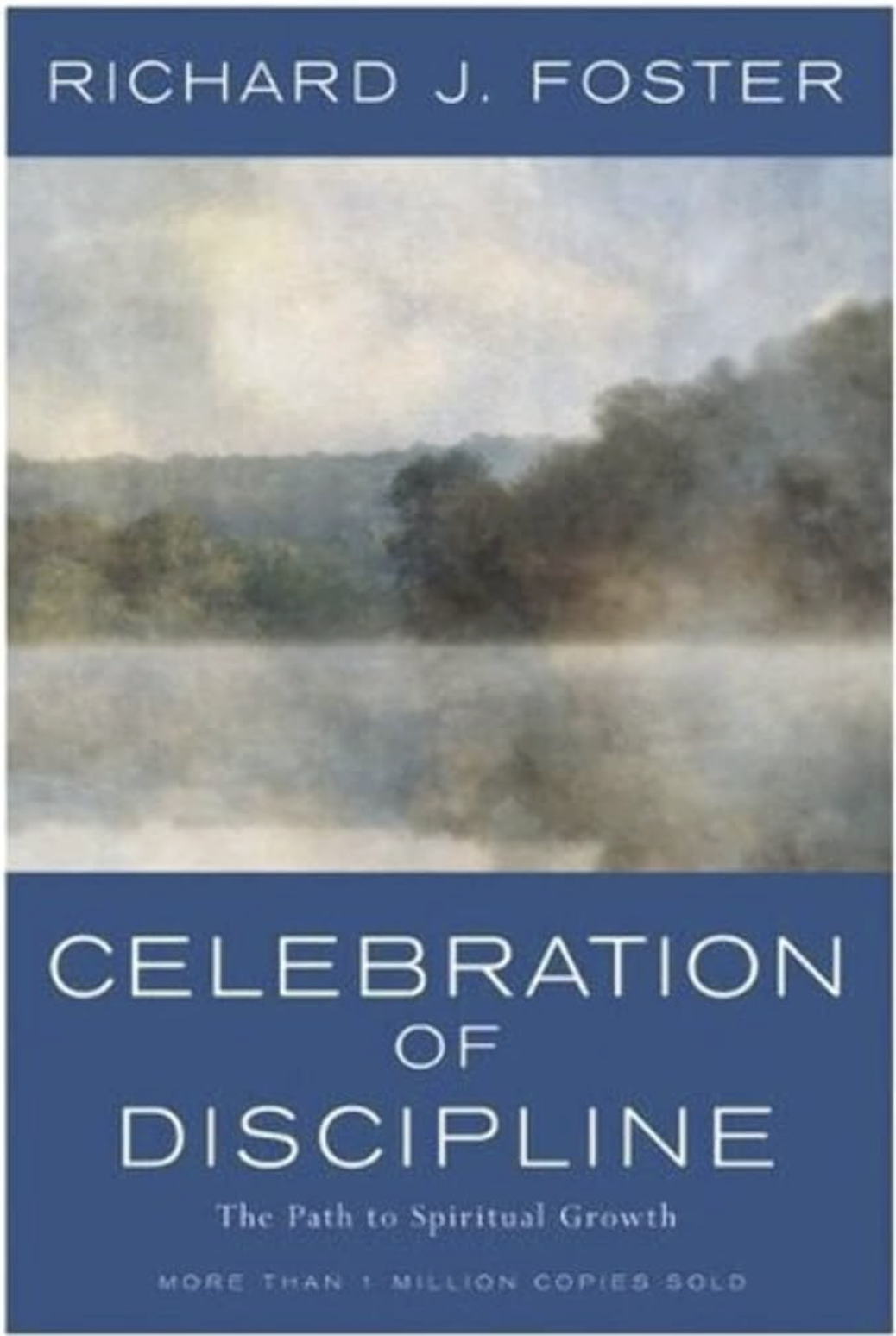CFUMC Reader’s Corner
Welcome to the Reader’s Corner! Whether you are looking for spiritual growth, Bible study resources, or timeless spiritual classics, the Reader’s Corner offers something for everyone. New recommendations will be posted each month, so check back often to see what is new! While some titles may be available in the CFUMC library, others may need to be borrowed or purchased elsewhere. If you would like help finding a book—or have a copy to share—please let us know!
Life of the Beloved: Spiritual Living in a Secular World
by Henri J.M. Nouwen
This little classic, written for a Jewish friend, stands as a powerful, gentle, moving affirmation that we are each a child of God, dearly loved, whether we believe that we can be or not. Accepting our own belovedness and facing up to our sense of unworthiness together work the healing needed to counter the whisper of doubt we harbor and nourish by nature. Read this little book as if it were written specifically for you. Ponder the counsel and trust its truth for you.
Invitation to Solitude and Silence: Experiencing God’s Transforming Presence
by Ruth Haley Barton
Even for those of us who maintain a daily routine of spiritual focus, that time we have set aside is occasionally preempted by something -- mundane or urgent -- calling us away. The fact of our having structured a dedicated time for withdrawing into silence is a sign of our desire to draw closer to God. But, in practical terms, how are we to approach this desired time of silence, and how can we manage our lives and practices to make this solitary time more meaningful and fulfilling? How do we deal with seasons of dryness in our spiritual walk? This invitation promises to open up new understandings and new ways of looking, perhaps, at some of the tools we already have in our repertoire.
Celebration of Discipline: The Path to Spiritual Growth
by Richard J. Foster
Here in this time of Lent, as we turn our hearts toward building a more focused and intentional walk with God, we may benefit from this classic, careful examination of the disciplines of Christian faith and practice. Celebration is organized into sections on the inward disciplines, the outward disciplines, and the corporate disciplines of Christian practice – 12 disciplines altogether. (Yes, fasting is included.) Each discipline is explored, with explanations and guidance, serving to point the way for growing Christians and as a welcome review for those who began the journey years ago.
-
Receiving Jesus: The Way of Love, by Mariann Edgar Budde, foreword by Michael B. Curry, c. 2019. Church Publishing, 105 pp.
Learning Humility: A Year of Searching for a Vanishing Virtue, by Richard J. Foster, c. 2022. Intervarsity Press, 182 pp.
In Search of Belief, Rev. Ed., by Joan Chittister, c. 1999, 2006. Liguori/Triumph, 215 pp.
We Make the Road by Walking: A Year-Long Quest for Spiritual Formation, Reorientation, and Activation, by Brian D. McLaren, c. 2014. Jericho Books, 281 pp.
Naked Spirituality: A Life with God in 12 Simple Words, by Brian D. McLaren, c. 2011. HarperOne, 280 pp.
The Path of Compassion: Living with Heart, Soul, and Mind, by Ronald J. Greer, c. 2018. Abingdon Press, 210 pp.
Peace, by Walter Brueggemann, c. 2001. [In the Understanding Biblical Themes series] Chalice Press, 205 pp.
Reading Scripture in Wesleyan Ways, ed. by Frederick David Carr & Brady Alan Beard, pub. 2025. Abingdon Press, 175 pp. [$0 on Kindle]
Invitation to Solitude and Silence: Experiencing God’s Transforming Presence, by Ruth Haley Barton, c. 2010. IVP Books, 164 pp.
Whose Gospel? A Concise Guide to Progressive Protestantism, by James A. Forbes, Jr., c. 2010. The New Press, 176 pp.
Naked Spirituality: A Life with God in 12 Simple Words, by Brian D. McLaren, c. 2011. HarperOne, 280 pp.
Return to the Root: Reflections on the Inner Life, by Joyce Rupp, c.2021. Sorin Books, 256 pp.
Your Sorrow Is My Sorrow: Hope and Strength in Times of Suffering, by Joyce Rupp, c. 1999. Publish Drive, 181 pp.
Braving the Thin Places: Celtic Wisdom to Create a Space for Grace, by Julianne Stanz, c. 2022. Loyola Press, 160 pp.
If the Church Were Christian: Rediscovering the Values of Jesus, by Philip Gulley, c. 2011. HarperOne, 224 pp.
Falling Upward: A Spirituality for the Two Halves of Life, by Richard Rohr, rev. ed. c. 2023. Jossey-Bass, 160 pp.
Home by Another Way, by Barbara Brown Taylor, c. 1997. Cowley, 224 pp.
Your God Is Too Small: A Guide for Believers and Skeptics Alike, by J.B. Phillips, c. 2004. Spiritual Growth Classics, 124 pp.
The Good Book: Reading the Bible with Mind and Heart, by Peter J. Gomes, c. 2002. HarperOne, 400 pp.
Faith After Doubt: Why Your Beliefs Stopped Working and What to Do About It, by Brian McLaren, c. 2022. St. Martin’s Essentials, 272 pp.
Celebration of Discipline: The Path to Spiritual Growth, by Richard J. Foster, c. 1978, 1988, 1998. Harper Collins, 216 pp.
-
Love Is the Way: Holding onto Hope in Troubling Times, by Bishop Michael Curry, c. 2020. Penguin Random House, 264 pp.
An Other Kingdom: Departing the Consumer Culture, by Peter Block, Walter Brueggemann, & John McKnight, c. 2016. John Wiley & Sons, Inc., 119 pp.
Life After Doom: Wisdom and Courage for a World Falling Apart, by Brian D. McLaren, c. 2024. St. Martin’s Publishing, 290 pp.
And: The Restorative Power of Love in an Either/Or World, by Felicia Murrell, c. 2024. Whitaker House, 295 pp. Use as personal meditations.
Seeing Gray in a World of Black and White: Thoughts on Religion, Morality, and Politics, by Adam Hamilton, c. 2012. Abingdon Press, 242 pp.
Everyday Activism: Following 7 Practices of Jesus to Create a Just World, by J.W. Buck, c. 2022. Baker Books,
Dear White Peacemakers: Dismantling Racism with Grit and Grace, by Osheta Moore, c. 2021. Herald Press, 325 pp.
Whose Gospel? A Concise Guide to Progressive Protestantism, by James A. Forbes, Jr., c. 2010. The New Press, 176 pp.
The Time Is Now: A Call to Uncommon Courage, by Joan Chittister, 2019. Convergent Books, 139 pp.
Creation’s Wisdom: Spiritual Practice and Climate Change, by Daniel Wolpert, c. 2020. Orbis Books, 184 pp.
Christ in Crisis? Reclaiming Jesus in a Time of Fear, Hate, and Violence, by Jim Wallis, c. 2019. HarperOne, 325 pp.
The Tears of Things: Prophetic Wisdom for an Age of Outrage, by Richard Rohr, c. 2025. Convergent, 173 pp.
Sabbath as Resistance: Saying No to the Culture of Now, by Walter Brueggemann, c. 2014. Westminster John Knox Press, 89 pp.
Seeing Gray in a World of Black and White: Thoughts on Religion, Morality, and Politics, by Adam Hamilton, c. 2008. Abingdon Press, 236 pp.
-
The Creation Naturalist: Nature Through the Lens of Faith, by Linda S. Carter, c. 2024. Cedar Ridge Books, 107 pp.
Church of the Wild: How Nature Invites Us into the Sacred, by Victoria Loorz, c. 2021. Broadleaf Books, 245 pp.
Creation’s Wisdom: Spiritual Practice and Climate Change, by Daniel Wolpert, c. 2020. Orbis Books, 184 pp.
The Serviceberry: Abundance and Reciprocity in the Natural World, by Robin Wall Kimmerer, c. 2024. Scribner, 128 pp.
Braiding Sweetgrass: Indigenous Wisdom, Scientific Knowledge, and the Teachings of Plants, by Robin Wall Kimmerer, c. 2015. Milkweed Editions, 408 pp.
Spiritual Ecology: The Cry of the Earth, ed.by Llewellyn Vaughan-Lee, c. 2016. The Golden Sufi Center, 336 pp.
Creation’s Wisdom: Spiritual Practice and Climate Change, by Daniel Wolpert, c. 2020. Orbis Books, 184 pp.
Christ of the Celts: The Healing of Creation, by J. Philip Newell, c. 2009. Wild Goose Pubs., 160 pp.
Refugia Faith: Seeking Hidden Shelters, Ordinary Wonders, and the Healing of the Earth, by Debra Rienstra, 2022. Fortress Press, 269 pp.
The Book of Nature: The Astonishing Beauty of God’s First Sacred Text, by Barbara Mahaney, c. 2025. Broadleaf Books, 191 pp.
-
The Path of Compassion: Living with Heart, Soul, and Mind, by Ronald J. Greer, c. 2018. Abingdon Press, 210 pp.
Everyday Activism: Following 7 Practices of Jesus to Create a Just World, by J.W. Buck, c. 2022. Baker Books,
Dear White Peacemakers: Dismantling Racism with Grit and Grace, by Osheta Moore, c. 2021. Herald Press, 325 pp.
Days of Awe and Wonder: How to Be a Christian in the 21st Century, by Marcus Borg, c. 2018. SPCK Publishing, 288 pp. Anthology.
Souls in Full Sail: A Christian Spirituality for the Later Years, by Emilie Griffin, c. 2010. IVP, 183 pp.
Boundless Compassion: Creating a Way of Life, by Joyce Rupp, 2018. Sorin Books, 224 pp.
Learning to Walk in the Dark, by Barbara Brown Taylor, c. 2015. HarperOne, 208 pp.
An Altar in the World: A Geography of Faith, by Barbara Brown Taylor, c. 2010. 240 pp.
Heart of Christianity: Rediscovering a Life of Faith, by Marcus Borg, c. 2003, 2011. Harper Collins, 226 pp.
Life After Doom: Wisdom and Courage for a World Falling Apart, by Brian D. McLaren, c. 2024. St. Martin’s Essentials, 290 pp.
-
Sermon on the Mount: A Beginner’s Guide to the Kingdom of Heaven, by Amy-Jill Levine, c. 2020. Abingdon Press, 128 pp.
Sacred: Embracing Dissonance and Dialogue in the Old Testament, by William P. Brown, c. 2025. Upper Room Books, 239 pp.
Faith in the Face of Empire: The Bible Through Palestinian Eyes, by Mitri Raheb, c. 2014. Orbis Books, 166 pp.
The Seeds of Heaven: Sermons on the Gospel of Matthew, by Barbara Brown Taylor, c. 2004. Westminster John Knox Press, 113 pp.
How to Read the Bible for All Its Worth, 4th ed., by Gordon D. Fee & Douglas Stuart, c. 2014. Zondervan Academic, 301 pp.
Reading the Bible Again for the First Time, by Marcus J. Borg, c. 2001. HarperCollins, 321 pp.
Misreading Scripture with Western Eyes: Removing Cultural Blinders to Better Understand the Bible, by E. Randolph Richards & Brandon J. O’Brien, c. 2012. Intervarsity Press, 240 pp.
Reading Scripture in Wesleyan Ways, ed. by Frederick David Carr & Brady Alan Beard, pub. 2025. Abingdon Press, 175 pp.
Seeing the Psalms: A Theology of Metaphor, by William P. Brown, c. 2002. Westminster John Knox Press, 215 pp. + Notes.
Jesus’ Alternative Plan: The Sermon on the Mount, by Richard Rohr, c. 2022. Franciscan Media, 208 pp.
The Bible With and Without Jesus: How Jews and Christians Read the Same Stories Differently, by Amy-Jill Levine and Marc Zvi Brettler, c. 2023. HarperOne, 512 pp. [Participant Guide and Leader Guide also available]
A More Christlike Word: Reading Scripture the Emmaus Way, by Bradley Jersak, c. 2021. Whitaker House, 288 pp.
The Tears of Things: Prophetic Wisdom for an Age of Outrage, by Richard Rohr, c. 2025. Convergent, 173 pp.
Praying the Psalms: Engaging Scripture and the Life of the Spirit, by Walter Brueggemann, 2nd ed., c. 2007. Cascade Books, 81 pp.
Praying the Psalms, by Thomas Merton, c. 2014. Martino Publishing, 32 pp.
-
Jesus and the Disinherited, by Howard Thurman, c. 1976, with new foreword by Kelly Brown Douglas, c. 2022. Beacon Press, 102 pp.
An Altar in the World: A Geography of Faith, by Barbara Brown Taylor, c. 2009. HarperOne, 216, pp.
Open Mind, Open Heart, 20th Anniversary Edition, by Thomas Keating, c.2006. Continuum IPG, 190 pp.
Prayer: Finding the Heart’s True Home, by Richard J. Foster, c. 1992. Harper Collins, 276 pp.
Loaves and Fishes, by Dorothy Day, c. 1963; Introduction c. 1983. Harper & Row, 216 pp.
The Breath of God: An Approach to Prayer, by Nancy Roth, c. 1990. Cowley Publications, 173 pp. [On the 1993 UMW Reading List]
Home by Another Way, by Barbara Brown Taylor, c. 1997. Cowley, 224 pp.
Your God Is Too Small: A Guide for Believers and Skeptics Alike, by J.B. Phillips, c. 2004. Spiritual Growth Classics, 124 pp.
Life Together: The Classic Exploration of Christian Community, by Dietrich Bonhoeffer, c. 1954. Harper Collins, 122 pp.
Simply Christian: Why Christianity Makes Sense, by N.T. Wright, c.2006. HarperSanFrancisco, 240 pp.
-
Receiving Jesus: The Way of Love, by Mariann Edgar Budde, foreword by Michael B. Curry, c. 2019. Church Publishing, 105 pp.
Learning Humility: A Year of Searching for a Vanishing Virtue, by Richard J. Foster, c. 2022. Intervarsity Press, 182 pp.
In Search of Belief, Rev. Ed., by Joan Chittister, c. 1999, 2006. Liguori/Triumph, 215 pp.
Pilgrim at Tinker Creek, Annie Dillard, c. 1974. Harper Perennial/Modern Classics, 290 pp.
Seeing the Sacred Outside Your Kitchen Door, by Barbara Mahany, c. 2014. Abingdon Press, 208 pp.
And: The Restorative Power of Love in an Either/Or World, by Felicia Murrell, c. 2024. Whitaker House, 295 pp.
How We Learn to Be Brave: Decisive Moments in Life and Faith, by Mariann Edgar Budde, c. 2023. Avery, 240 pp.
Longing for Enough in a Culture of More, by Paul L. Escamilla, c. 2010. Abingdon, 146 pp.
An Altar in the World: A Geography of Faith, by Barbara Brown Taylor, c. 2010. 240 pp.
Listening to Your Life: Daily Meditations with Frederick Buechner, c. 1992. HarperOne, 384 pp.
The Sacred Journey: A Memoir of Early Days, by Frederick Buechner, c. 1991. HarperOne, 128 pp.
Seasons of Your Heart: Prayers & Reflections, Rev. ed., by Macrina Wiederkehr, c. 1991. HarperCollins, 195 pp.
A Thousand Mornings, by Mary Oliver, c. 2012. Penguin Books, 77 pp.
-
Everything Belongs: The Gift of Contemplative Prayer, by Richard Rohr, c. 1999, 2003. 192 pp.
Prayer: Finding the Heart’s True Home, by Richard J. Foster, c. 1992. Harper Collins, 276 pp.
The Breath of God: An Approach to Prayer, by Nancy Roth, c. 1990. Cowley Publications, 173 pp. [On the 1993 UMW Reading List]
Learning to Pray: A Guide for Everyone, by James Martin, SJ, c. 2021. WilliamCollinsBooks, 386 pp.
Doors Into Prayer: An Invitation, by Emilie Griffin, c. 2005. Paraclete Press, 136 pp.
Creating a Life with God: The Call of Ancient Prayer Practices, Rev. Ed., by Daniel Wolpert, c. 2023. Upper Room Books, 224 pp.
Forty Days to a Closer Walk with God: The Practice of Centering Prayer, by J. David Muyskens, c. 2007. Upper Room Books, 138 pp.
Sanctuary of the Soul: A Journey into Meditative Prayer, by Richard J. Foster, c. 2012. Hodder & Stoughton, 176 pp.
Praying the Psalms: Engaging Scripture and the Life of the Spirit, by Walter Brueggemann, 2nd ed., c. 2007. Cascade Books, 81 pp.
Praying the Psalms, by Thomas Merton, c. 2014. Martino Publishing, 32 pp.
-
An Altar in the World: A Geography of Faith, by Barbara Brown Taylor, c. 2009. HarperOne, 216 pp.
In Search of Belief, Rev. Ed., by Joan Chittister, c. 1999, 2006. Liguori/Triumph, 215 pp.
The Ten Commandments: Laws of the Heart, by Joan Chittister, c. 2006. Orbis Books, 152 pp.
Scarred by Struggle, Transformed by Hope, by Joan Chittister, c. 2003. Wm. B. Eerdmans Pub. Co., 111 pp.
Sermon on the Mount: A Beginner’s Guide to the Kingdom of Heaven, by Amy-Jill Levine, c. 2020. Abingdon Press, 128 pp.
The Seeds of Heaven: Sermons on the Gospel of Matthew, by Barbara Brown Taylor, c. 2004. Westminster John Knox Press, 113 pp.
The Breath of God: An Approach to Prayer, by Nancy Roth, c. 1990. Cowley Publications, 173 pp. [On the 1993 UMW Reading List]
The Misunderstood Jew: The Church and the Scandal of the Jewish Jesus, by Amy-Jill Levine, c. 2006. HarperOne, 228 pp.
The Time Is Now: A Call to Uncommon Courage, by Joan Chittister, 2019. Convergent Books, 139 pp.
Doors Into Prayer: An Invitation, by Emilie Griffin, c. 2005. Paraclete Press, 136 pp.
Freeing Jesus: Rediscovering Jesus as Friend, Teacher, Savior, Lord, Way, and Presence, by Diana Butler Bass, 2022. HarperOne, 320 pp.
Souls in Full Sail: A Christian Spirituality for the Later Years, by Emilie Griffin, c. 2010. IVP, 183 pp.
Return to the Root: Reflections on the Inner Life, by Joyce Rupp, c. 2021. Sorin Books, 256 pp.
Your Sorrow Is My Sorrow: Hope and Strength in Times of Suffering, by Joyce Rupp, c. 1999. Publish Drive, 181 pp.
Boundless Compassion: Creating a Way of Life, by Joyce Rupp, 2018. Sorin Books, 224 pp.
Learning to Walk in the Dark, by Barbara Brown Taylor, c. 2015. HarperOne, 208 pp.
The Bible With and Without Jesus: How Jews and Christians Read the Same Stories Differently, by Amy-Jill Levine and Marc Zvi Brettler, c. 2023. HarperOne, 512 pp. [Participant Guide and Leader Guide also available]
The Historical Jesus in Context, by Amy-Jill Levine. [Part of Princeton Readings in Religions]
Miracles and Wonder: The Historical Mystery of Jesus, by Elaine Pagels, c. 2025. Doubleday, 336 pp.
-
Christ in Crisis: Why We Need to Reclaim Jesus, by Jim Wallis, c. 2019. HarperOne, 304 pp.
The Misunderstood Jew: The Church and the Scandal of the Jewish Jesus, by Amy Jill Levine, c. 2006. HarperOne, 228 pp.
Freeing Jesus: Rediscovering Jesus as Friend, Teacher, Savior, Lord, Way, and Presence, by Diana Butler Bass, 2022. HarperOne, 320 pp.
Jesus’ Alternative Plan: The Sermon on the Mount, by Richard Rohr, c. 2022. Franciscan Media, 208 pp.
The Historical Jesus in Context, by Amy-Jill Levine. [Part of Princeton Readings in Religions]
Miracles and Wonder: The Historical Mystery of Jesus, by Elaine Pagels, c. 2025. Doubleday, 336 pp.
If the Church Were Christian: Rediscovering the Values of Jesus, by Philip Gulley, c. 2011. HarperOne, 224 pp.



